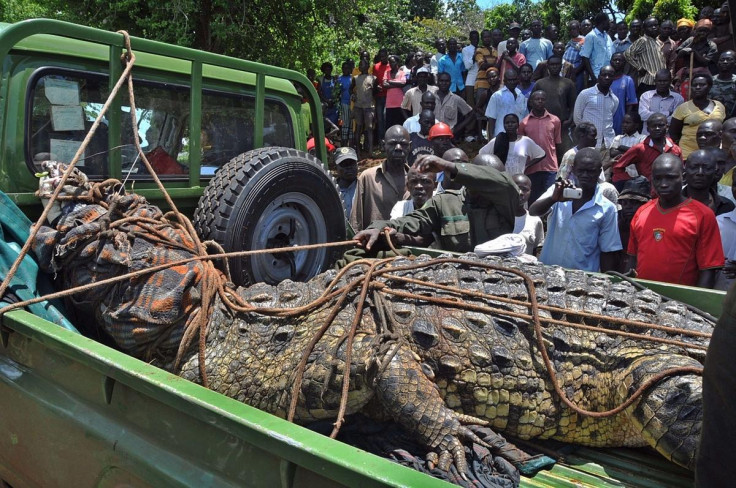Man-Eating Crocodile Captured in Uganda

One of the world's largest crocodiles, suspected of eating six people, has been caught in Lake Victoria, Uganda.
Terrified locals demanded officials hunt the reptile after it devoured its most recent victim, father-of-two Bosco Nyansi. Friends of the fisherman said he was mauled by the beast. They only found remnants of his clothes, which were floating in the river.
The 1,000kg crocodile is also thought to have seriously injured other fishermen.
Officials in Uganda believe the reptile is 80-years-old and weighs only 47kg less than the largest crocodile held in captivity – a 21ft saltwater crocodile captured in the Philippines.
Game wardens finally trapped the reptile after a four-day search, with a large hunk of meat skewered on a hook. It will be transferred to the Murchison Falls national park.
As the crocodile was finally cornered and trussed up, hundreds of people gathered to look at the enormous creature, marvelling at its size.
The African species grows up to 20-feet-long, and can weigh as much as 2,000lb, with a temperament much more aggressive than the smaller American crocodile.
Crocodiles are thought to be responsible for up to 745 attacks on people every year, most of them fatal. It is the third-most dangerous predator in Africa, after the lion and hippopotamus, according to the Crocodile Specialist Group of the International Union for Conservation of Nature.
"They get big. They're vicious. The animals are just more aggressive and they learn that humans are easy targets," said Joe Wasilewski, a reptile expert.
Crocodiles have been around for more than 200 million years. The average lifespan of a Nile crocodile is about 45 years, but can be much longer in captivity.
Typically, crocodiles kill huge preys such as young hippopotamuses, giraffes, lions, buffalo - and also occasionally humans.
A ferocious man-eating crocodile believed to be on the loose has killed as many as 300 humans on the shores of Lake Tanganyika. It was given the nickname Gustave by Patrice Faye, a herpetologist, who studies reptiles and amphibians.
© Copyright IBTimes 2025. All rights reserved.




















